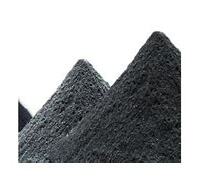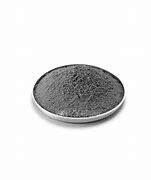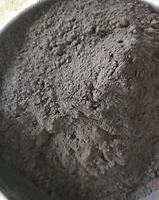Overview of Factory niobium carbide powder NbC nanoparticles NbC nanopowder
Niobium, often found in conjunction with tantalum minerals, is primarily extracted as a byproduct of tin and tantalum mining. Its chief ores include pyrochlore and columbite. Once refined, niobium becomes highly versatile, finding application in alloys, superconductors, and various high-tech materials.
Feature of Factory niobium carbide powder NbC nanoparticles NbC nanopowder
-
Superior Strength and Lightness: When added to steel in small quantities (typically less than 1%), niobium significantly enhances the strength and toughness of the alloy while reducing its weight, making it ideal for aerospace and automotive applications.
-
Corrosion Resistance: Like tantalum, niobium forms a passive oxide layer that protects it from corrosion, making niobium-based alloys suitable for use in harsh environments.
-
Superconductivity: Niobium exhibits excellent superconducting properties when cooled below its critical temperature of about 9.2 K (-264°C or -443°F). This property makes it the primary material for superconducting magnets used in MRI scanners and particle accelerators.
-
Magnetic Properties: Niobium is paramagnetic at room temperature but becomes strongly diamagnetic when cooled, meaning it repels magnetic fields. This characteristic is exploited in certain specialized applications.
-
Ease of Fabrication: Despite its strength, niobium is easily formed, welded, and machined, facilitating its use in complex engineering designs.

(Factory niobium carbide powder NbC nanoparticles NbC nanopowder)
Parameters of Factory niobium carbide powder NbC nanoparticles NbC nanopowder
The parameters used to describe the characteristics of Niobium carbide (NbC) powder include particle size, shape, porosity, and chemical composition. Here are some common parameters:
* Particle size: The size of the particles is typically measured in nanometers (nm). The smaller the particle size, the higher the surface area and the greater the effect on thermal properties.
* Shape: The shape of the particles can affect their thermal conductivity, diffusivity, and specific heat capacity. For example, spherical particles have the lowest thermal conductivity of all shapes, while cylindrical or rod-shaped particles may have higher thermal conductivity due to their greater surface area.
* Porosity: Porosity refers to the percentage of empty space in the particle matrix. High porosity can lead to decreased mechanical strength and increased thermal conductivity.
* Chemical composition: The chemical composition of the powder determines its physical and chemical properties. Commonly used elements include carbon, oxygen, nitrogen, and hydrogen. The composition of the powder can also affect its thermal stability, melting point, and strength.
It’s important to note that these parameters can vary depending on the production method and the desired properties of the final product. It’s also worth noting that there are many other factors that can influence the performance of Niobium carbide powders, such as the temperature range over which they operate, the moisture content of the powder, and the presence of impurities or additives.

(Factory niobium carbide powder NbC nanoparticles NbC nanopowder)
Company Profile
Metal in China is a trusted global chemical material supplier & manufacturer with over 12-year-experience in providing super high-quality copper and relatives products.
The company has a professional technical department and Quality Supervision Department, a well-equipped laboratory, and equipped with advanced testing equipment and after-sales customer service center.
If you are looking for high-quality metal powder and relative products, please feel free to contact us or click on the needed products to send an inquiry.
Payment Methods
L/C, T/T, Western Union, Paypal, Credit Card etc.
Shipment
It could be shipped by sea, by air, or by reveal ASAP as soon as repayment receipt.
FAQ

(Factory niobium carbide powder NbC nanoparticles NbC nanopowder)





